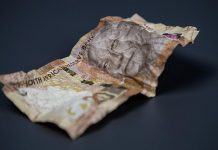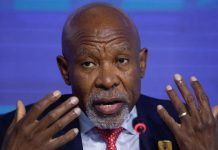Africa-Press – South-Africa. Local and foreign investors are pumping money into South African bonds, with the JSE All Bond Index on track for its best performance since 2001.
This has been driven by the attractive yield on South African government bonds, lower interest rates, and improved state finances.
The recent move off the Financial Action Task Force grey list will further boost South Africa’s credibility, bring back some foreign investment, and improve sentiment.
However, things can change quickly, particularly if the South African rand weakens meaningfully in a short period of time.
Crucially for South Africa, this has been powered by renewed investment from foreigners in local bonds, marking a stark contrast to the past 15 years.
Stanlib chief economist Kevin Lings noted that foreign investors bought a total of $4.45 billion (R77 billion) of South African government bonds in August and September.
According to Lings, this is the two-month period of foreign purchases since at least 1994, indicating that investors have increasing confidence in South Africa’s fiscal situation.
Chief investment strategist at Old Mutual’s Symmetry, Izak Odendaal, described 2025 as a “scary good” year for South African bonds.
“We are on track for one of the best years this century, and you will see this pushing up the performance of even low-risk funds or fixed income investments,” Odendaal said.
He explained that the main drivers behind this strong performance are an attractive yield at the beginning of 2025, falling interest rates, subdued inflation, and better fiscal policy.
This has also been coupled with increased investor interest in emerging markets as US financial assets appear expensive and commodity prices have risen strongly.
Odendaal expects this performance to continue into 2026, but cautioned that a repeat of the stellar 2025 is unlikely over the coming 12 months.
South African bonds have been proven attractive to investors despite the country’s slow economic growth, with only two years since 2000 seeing negative returns for bonds.
Odendaal also cautioned that things can go wrong very quickly, as they did in 2001, when the rand collapsed in December. This sent bond prices into meltdown.
This is unlikely to happen again, but it is a warning against complacency and making one-way bets on a particular asset.
The graph below, courtesy of Odendaal and Symmetry, shows the performance of the JSE’s All Bond Index for every year since 2000. The orange line is 2025.
Stocks don’t feel the love
While South African bonds have received billions in investments from foreign investors, local equities have not felt the love in 2025.
Foreign investors remain net sellers of local equities, having dumped R165 billion worth in the first eight months of 2025.
This is substantially more than the R93 billion sold in the same periods in 2024, despite a strong rally in precious metals prices that has benefitted the JSE.
The JSE has had one of its best years on record, with it surging by around 40% in dollar terms and far outpacing more developed global peers.
Old Mutual Investment Group (OMIG) portfolio manager John Orford explained that this indicates a significant change in the way investors view South Africa.
Orford said that typically, bonds and stocks move in tandem, with both impacted significantly by the country’s stagnant economy.
However, in 2025, this dynamic has changed with the performance of domestic shares and bonds decoupling.
Bond prices have risen strongly, while the shares of South African-focused companies have lagged their peers so far.
Orford explained that this indicates investors still have fears of a stagnant South African economy, but are encouraged by improved government finances.
For South African-focused stocks to rerate positively, faster economic growth and concrete evidence of successful reforms are needed.
The Reserve Bank revealed in its latest Quarterly Bulletin that foreign investors have sold R15 billion in the first eight months of 2025.
It attributed these sales to weak domestic economic growth and recurring policy disputes within South Africa’s government of national unity (GNU).
This was coupled with continued geopolitical risks and investor concerns over the 30% tariff imposed on South African exports to the United States.
Despite these net sales from foreign investors, the JSE itself has had a blockbuster year in terms of trading activity and investment.
The combined value of turnover in the secondary share market of the four South African stock exchanges of R4.6 trillion in the first eight months of 2025 was 30% higher compared with the same period of 2024.
For More News And Analysis About South-Africa Follow Africa-Press






